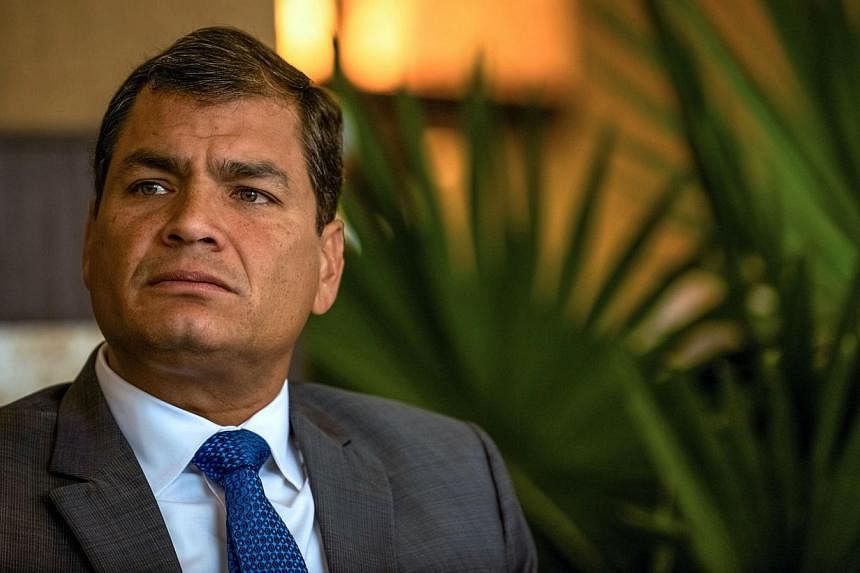NEW YORK (Bloomberg) - Six years ago, Ecuador President Rafael Correa's government denounced the 10 per cent in annual interest the country paid on its bonds as "usury." So when the 51-year-old former economics professor was willing to pay 10.5 per cent in a sale of notes this month, it raised speculation the Opec nation may be running short of cash after oil prices collapsed.
Before the March 19 sale, Ecuador told potential buyers it wanted to pay less than 8 per cent to borrow at least US$1 billion for as long as seven years, two people with knowledge of the offering said. Instead, the Andean nation got just US$750 million for five years at yields that were more than two percentage points higher.
The sale "indicates that they are running into trouble," said Sarah Glendon, an economist at Gramercy Funds Management.
The more than 50 per cent plummet in the nation's oil prices from their June peak last year caused bond investors to demand more compensation to finance Ecuador's widening budget shortfall, less than a year after the country borrowed US$2 billion for a decade at lower rates.
Even after a round of spending cuts, the government, which gets about a quarter of its revenue from oil, has a record US$10.5 billion of financing needs this year. That's compelled Correa to court banks, international investors, companies and foreign governments to close the deficit.
In the latest sale, the annual interest that Ecuador agreed to pay to issue five-year bonds was the highest of any comparable dollar-denominated security since an offering by Turkey in 2002, according to data compiled by Bloomberg.
The yield was also higher than on Ecuador's bonds due in 2024, which is unusual because shorter-dated debt usually carries lower borrowing costs.
Yields on the 2024 securities have jumped 0.94 percentage point since the country started meeting with investors to discuss the sale of the new notes to 9.85 per cent. During the same time, average yields for developing nations fell, according to indexes from JPMorgan Chase & Co.
Correa said Saturday that the economy was strong and that the government was ready if oil prices kept falling.
"We're prepared for extreme cases, even if oil prices fall to US$20 a barrel," Correa said in his weekly speech to the nation. "We know how to handle these difficult times."
Before Ecuador defaulted on about US$3.2 billion of foreign bonds in 2008 and 2009, a government-sponsored commission formed by Correa concluded that much of the debt taken out by previous governments was illegal, in part because of the high interest rates charged.
The fact that Ecuador was willing to issue debt with such high interest rates is "very unusual," said Siobhan Morden, the head of Latin America fixed-income strategy at Jefferies Group LLC in New York.
"This deal made Ecuador look desperate," Morden said.

